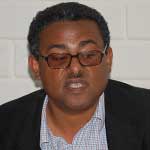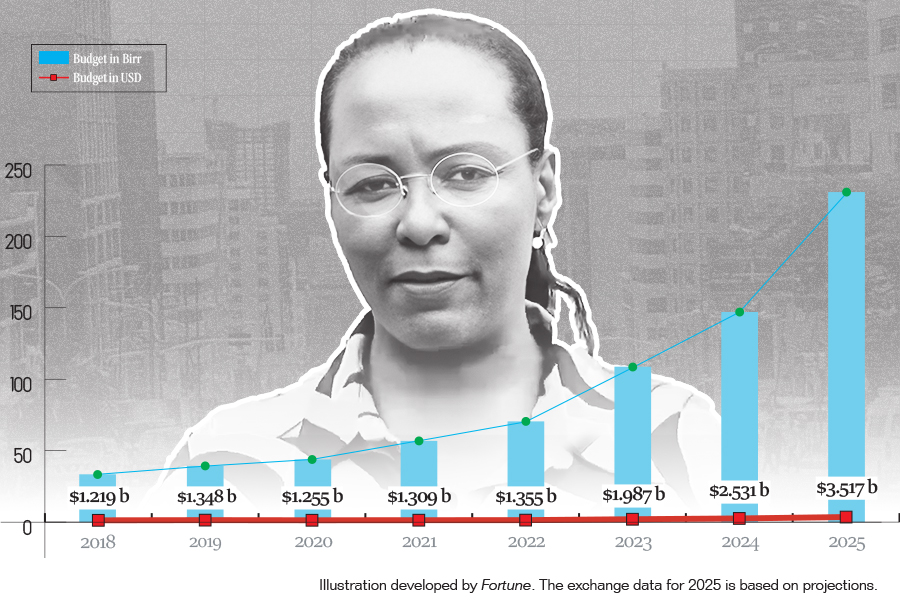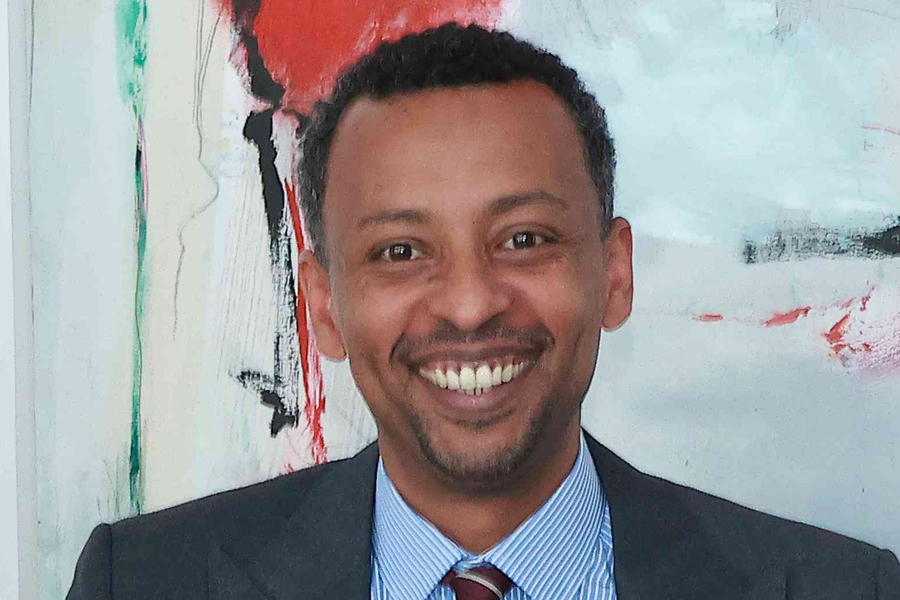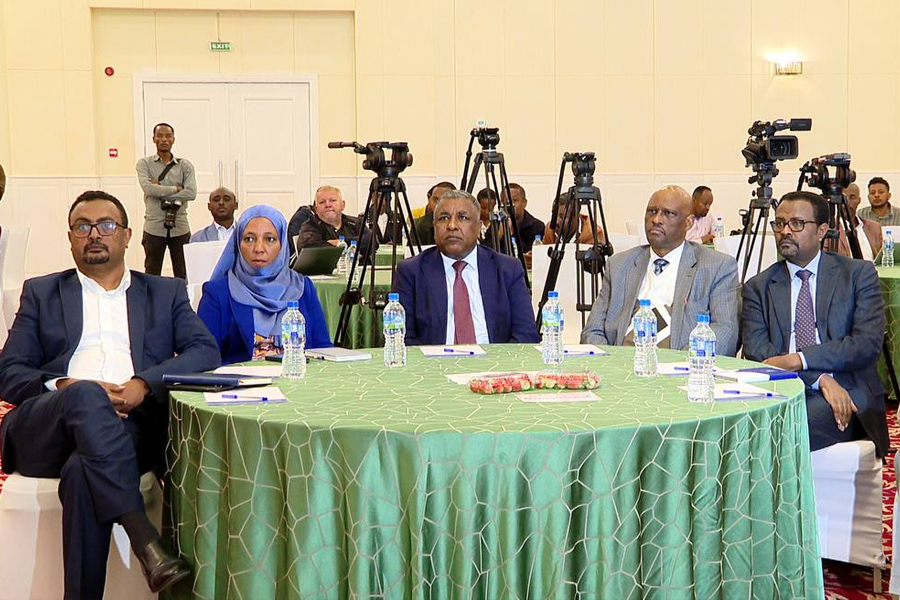
Radar | May 18,2019
Jul 18 , 2020
By Eden Sahle
Leadership requires giving succour to ideas and organising and encouraging individuals and institutions to put them into practice. It is a privileged position that is all the more critical in a country teetering on the edge, consumed with rampant poverty and violent conflict.
The concept that political leaders exist for the sake of the public, and not vice versa, has never fully been accepted in Ethiopia. Neglecting and abusing the economic, political and social rights of citizens continues to be not as egregious an act as long as it is done by someone to their own “people.”
This is the direct consequence of the generational political experience of Ethiopia. Those in power failed to manage to influence society in a positive direction, and thus felt they needed to use force to nudge society in that direction. They have set a distorted example in their exercise of power that others emulated for centuries. Leaders forget their promises and what they told the public as soon as they comfortably settled in power.
It does not take a political observer of the first class to realise that bad leadership and corruption in government have hampered the economic, political and social development of Ethiopia. Lack of an efficient and practical national vision has dragged the country away from substantial progress.
Political leaders, both inside and outside of power, like to pay lip service to the economic backwardness of the country and the violence that continues to reign in relationships between communities. But most of them, if not all, fail to see their contribution to this state of affairs. In their eyes, everything they say or do is justified as long as it is coming from them. We rarely ever hear them admitting wrongdoing or expressing regret for the consequences their actions and words might have had.
No government or political leader can be perfect. Still, by staying in touch with the public demand based on unwavering respect for different opinions and constructive criticism, leaders can meet the needs and interests of those they claim to represent.
Political leaders, by virtue of embodying the moral and ethical basis for worldviews, have the great responsibility of setting a good example for everyone. Political rhetoric, in party circles, may be flattering but is dangerous when executed without responsibility.
Leadership virtues are furthermore exemplified not just by what is preached but by the care and dedication that is practised and the initiatives we observe. We evaluate leadership by the remarkable actions that can move the country forward.
The universal demand of the public is for a better standard of living and justice. This requires good governance and the capacity to weigh properly what should be kept and what should be cut. Most importantly, what is required of political leaders is to respect the public enough to make their own opinions.
This is something that is desperately needed in the current political situation, where fellow Ethiopians are branded as enemies. Similarly, the presumption of innocence until proven guilty by the court of law should be extended to everyone. Labelling people as criminals is up to the court, not the media, the public and, most certainly, not government officials.
The public is in dire need of political leaders with creativity, emotional intelligence, insight and the willingness to work with other political parties - leaders that are ahead of the people but never out of sight of their interests, demonstrating self-control and respect for human dignity and justice. After all, when everything is said and done, leadership must lead to change that translates into visible benefits for society.
The public is demanding a response to the long-neglected public outcry, and setting a great leadership example for the ill-served nation is important. Fulfilling the public’s demand requires law-abiding, respectful, devoted and democratic leadership. These should be attributes we find with any leader, not features we marvel at because they come about extremely rarely.
Eden Sahle is founder and CEO of Yada Technology Plc. She has studied law with a focus on international economic law. She can be reached at edensah2000@gmail.com.
PUBLISHED ON
Jul 18,2020 [ VOL
21 , NO
1055]

Radar | May 18,2019

Editorial | Apr 17,2021

Life Matters | Jan 07,2022

Commentaries | Oct 12,2019

Sunday with Eden | Dec 19,2018

Verbatim | May 16,2020

Commentaries | Nov 09,2019

Commentaries | Nov 02,2019

My Opinion | Jul 13,2024

Fortune News | Feb 20,2019

My Opinion | 108813 Views | Aug 14,2021

My Opinion | 105210 Views | Aug 21,2021

My Opinion | 104020 Views | Sep 10,2021

My Opinion | 103320 Views | Aug 07,2021

Jul 13 , 2024 . By AKSAH ITALO
Investors who rely on tractors, trucks, and field vehicles for commuting, transportin...

Jul 13 , 2024 . By MUNIR SHEMSU
The cracks in Ethiopia's higher education system were laid bare during a synthesis re...

Jul 13 , 2024 . By AKSAH ITALO
Construction authorities have unveiled a price adjustment implementation manual for s...

Jul 13 , 2024
The banking industry is experiencing a transformative period under the oversight of N...

Jul 20 , 2024
In a volatile economic environment, sudden policy reversals leave businesses reeling...

Jul 13 , 2024
Policymakers are walking a tightrope, struggling to generate growth and create millio...

Jul 7 , 2024
The federal budget has crossed a symbolic threshold, approaching the one trillion Bir...

Jun 29 , 2024
In a spirited bid for autonomy, the National Bank of Ethiopia (NBE), under its younge...

Jul 21 , 2024 . By TIZITA SHEWAFERAW
Mayor Adanech Abebie's Administration faced an audit report that unveiled a startling...

Jul 21 , 2024 . By AKSAH ITALO
Brook Taye (PhD), director general of the Ethiopian Capital Market Authority, has tak...

Jul 21 , 2024 . By AKSAH ITALO
Ethiopia's horticulture, a major source of foreign currency and employment, is facing...

Jul 21 , 2024 . By AKSAH ITALO
Commercial banks are now permitted to acquire equity shares in capital market service...